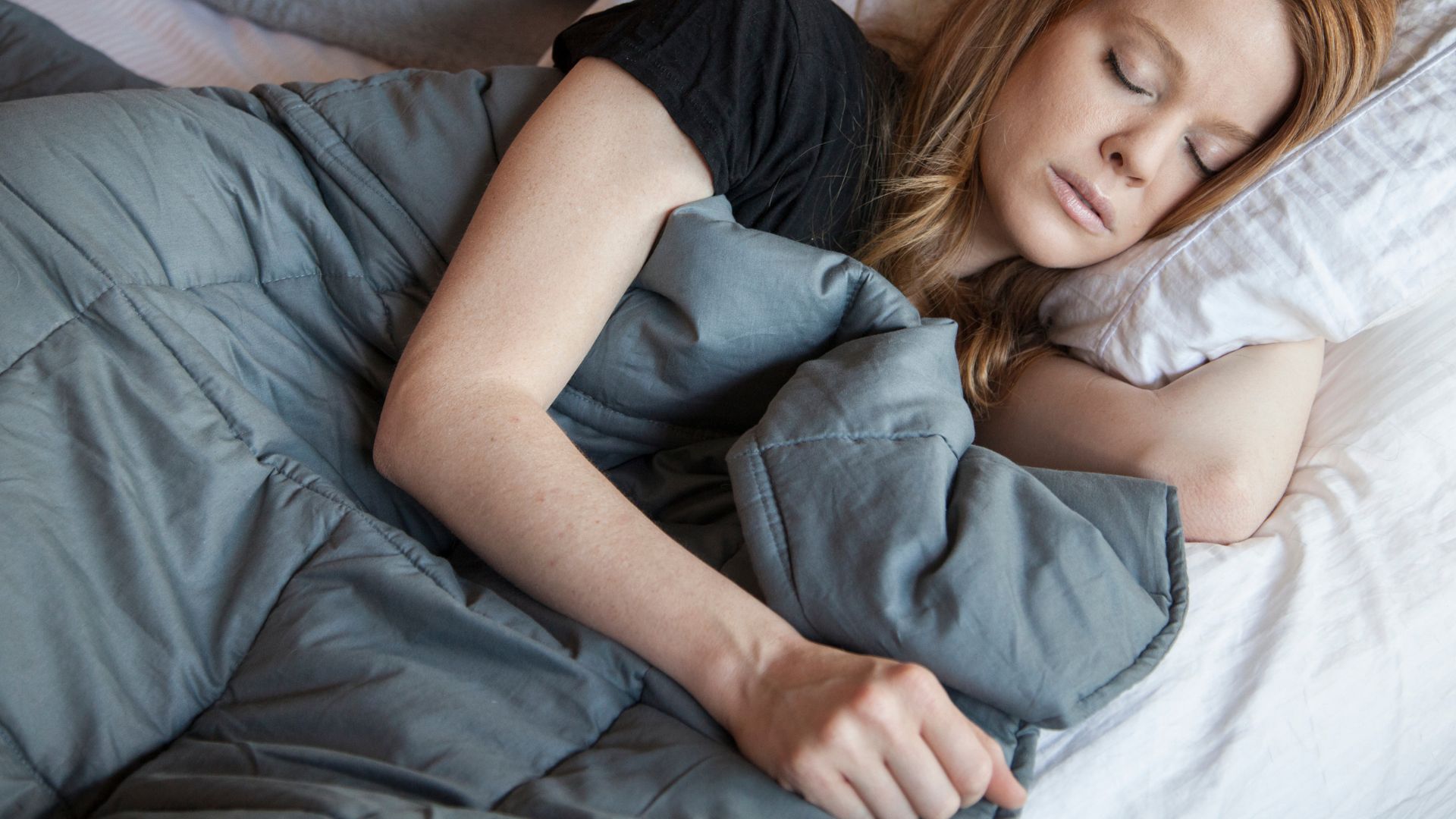Weighted-blanket use may boost sleep hormone melatonin, small study hints
A small study links weighted-blanket use at bedtime to increased melatonin production.

Get the world’s most fascinating discoveries delivered straight to your inbox.
You are now subscribed
Your newsletter sign-up was successful
Want to add more newsletters?

Delivered Daily
Daily Newsletter
Sign up for the latest discoveries, groundbreaking research and fascinating breakthroughs that impact you and the wider world direct to your inbox.

Once a week
Life's Little Mysteries
Feed your curiosity with an exclusive mystery every week, solved with science and delivered direct to your inbox before it's seen anywhere else.

Once a week
How It Works
Sign up to our free science & technology newsletter for your weekly fix of fascinating articles, quick quizzes, amazing images, and more

Delivered daily
Space.com Newsletter
Breaking space news, the latest updates on rocket launches, skywatching events and more!

Once a month
Watch This Space
Sign up to our monthly entertainment newsletter to keep up with all our coverage of the latest sci-fi and space movies, tv shows, games and books.

Once a week
Night Sky This Week
Discover this week's must-see night sky events, moon phases, and stunning astrophotos. Sign up for our skywatching newsletter and explore the universe with us!
Join the club
Get full access to premium articles, exclusive features and a growing list of member rewards.
Using a weighted blanket at bedtime may boost the body's production of the sleep-promoting hormone melatonin, a small study suggests.
However, at this point, it's unclear why the hefty blankets might increase melatonin levels and whether this significantly improves people's sleep quality, the study authors wrote in a report published Oct. 3 in the Journal of Sleep Research.
"This is a very interesting study, but it would be nice to see it replicated in a second cohort because it is not an obvious thing that melatonin should increase with a weighted blanket," Håkan Olausson, a neuroscientist at Linköping University in Sweden, told The Washington Post.
Melatonin helps the body transition into sleep mode, during which body temperature falls, metabolism slows and levels of the stress hormone cortisol decrease; melatonin also increases drowsiness in the hours before bed. Melatonin levels generally increase in the evening, peak at night and decrease as morning approaches, according to BrainFacts.org. That's because a part of the brain called the suprachiasmatic nucleus (SCN) syncs melatonin production with the time of day.
Related: Can you make up for lost sleep?
The SCN does so by monitoring light-related signals from the retina. Bright light prompts the SCN to shoot electrical signals to other brain structures, which then relay the message through the spinal cord and on to organs. This chain message eventually reaches the pea-size pineal gland, which pauses its production of melatonin. Conversely, dim light and darkness lift the brakes on the pineal gland and jump-start melatonin production.
In addition to light, environmental factors — such as the timing of meals, physical activity and social interactions — can sway somewhat when melatonin gets made, according to a 2005 review in the Journal of Biological Rhythms.
Get the world’s most fascinating discoveries delivered straight to your inbox.
So scientists wondered whether a different sensory cue — the pressure of a weighted blanket — also might influence melatonin production.
To investigate this question, they asked 11 women and 15 men in their 20s to spend a few nights sleeping in a lab — once to get used to the environment, once under a lightweight blanket and once under a weighted blanket. None of the study participants had insomnia or had previously used weighted blankets.
During a session, each participant would eat dinner, sit in bright light for two hours and then sit in dim light until lights out at 11 p.m. One hour before lights out, they would snuggle up under either the lightweight blanket or the weighted blanket. In that hour, the researchers took saliva samples every 20 minutes to monitor each subject's melatonin levels. (Saliva melatonin concentrations are generally about 30% of what's present in a person's bloodstream.)
On average, when under a weighted blanket, the participants' melatonin levels rose about 32% higher than they did under the lightweight blanket, although the study can't show why this was, the study authors noted. What's more, using the blanket did not seem to affect the participants' sleep; they were just as sleepy before bedtime and after waking up in both scenarios, and their total sleep time was the same in both scenarios.
"Future studies should investigate whether the stimulatory effect on melatonin secretion is observed on a nightly basis when frequently using a weighted blanket over weeks to months," the study authors wrote. "It remains to be determined whether the observed increase in melatonin may be therapeutically relevant for the previously described effects of the weighted blanket on insomnia and anxiety."
It's also not clear whether the observed melatonin boost would be seen in other groups, including older people, given that people's circadian rhythms often become disrupted with age, according to a 2019 review in the International Journal of Environmental Research and Public Health.

Nicoletta Lanese is the health channel editor at Live Science and was previously a news editor and staff writer at the site. She holds a graduate certificate in science communication from UC Santa Cruz and degrees in neuroscience and dance from the University of Florida. Her work has appeared in The Scientist, Science News, the Mercury News, Mongabay and Stanford Medicine Magazine, among other outlets. Based in NYC, she also remains heavily involved in dance and performs in local choreographers' work.
 Live Science Plus
Live Science Plus










